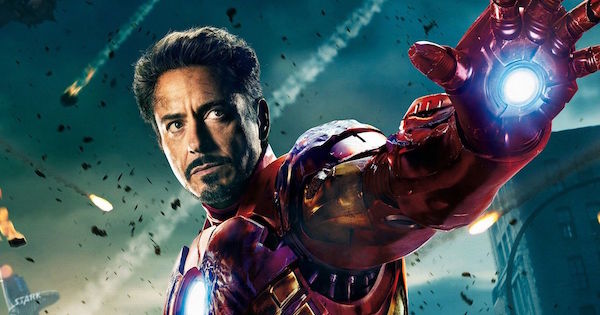The column below is a solo feature, that’s only because my writing this time was inspired by a reaction to a specific incident. Matt and I will both be back in the future, with more tales from the metal and parenting trenches. Until then, thanks for your patience. We’ll see you soon.
— Craig
I’ve got a tale of woe to tell in this column. But I promise the payoff is worth the initial gloom. My story starts eleven months ago, when I crushed a nerve in my right forearm, and lost the use of my dominant hand and arm for months. At that time, I entered a world of chronic pain that has not ceased, and because I have a history of drug and alcohol abuse, my options for any serious pain medications are pretty much nil.
Essentially, even though I’ve been clean and sober for 15 years, there’ve been no analgesics for me; I’ve just had to tough my injury out. To be honest, that’s been really fucking challenging, for many reasons. But one of the major reasons is directly related to being a parent.
As a parent, it’s kind of my job to lead by example. I’m aware that how I deal with life’s hurdles and setbacks is obviously a lesson, of sorts, for my son. So I’ve tried to deal with the consequences of my arm injury sensibly. But, unfortunately, my injury has ended up having much larger consequences than I’d ever anticipated.
For a start, long-term and primarily untreated pain has knock-on health complications — in my case, both physical and mental. I had to give up hosting a radio show that I utterly loved because my arm made the task impossible. I had to stop writing for many months, and all my paid work disappeared too. Then, in the midst of all that, I decided to crowdfund what I thought was a really great idea to support underground music round my neck of the woods. But that idea tanked, which didn’t do much for my rapidly plummeting mood.
Add all those depressing realities up, and sprinkle them with months of continual pain, and now I’m back attending weekly psychiatric appointments after years of successfully managing what had been devastating mental health issues for me in the past.
Point being, I’m not feeling super upbeat. But here’s the important part: I’m not telling you any of this because I think my trials are special or even notable — plenty of parents face significant hurdles in life. I’m simply framing how stressed, sick and exhausted I’ve become over the past year. Because it’s a crucial ingredient in what happens next.
As I’ve descended into being unwell, my son (who is 12) has become increasingly more emotionally developed. I’ve always been a dad with a few quirks — and I’m sure we all have those — but because my injury led me to such a bad place, I think it’s safe to say my son soon realised that maybe his dad’s quirks are a tad… well, different.
I’m still doing my best to be a present, organised and caring parent. But some days I feel like I’m utterly failing at every one of those tasks. My son knows I’m getting help to try and remedy feeling like that. But that’s only the tip of a conversation that he and I have to have about my mental health issues.
To be clear, I don’t think that having mental health issues makes you a bad parent or any less of a parent. Far from it. I think diversity and difference and a deep understanding of where emotional difficulties can lead to counts for a lot when it comes to parenting.
But when I’m feeling unwell my self-esteem and confidence are the very first things to exit the building. So I feel like a bad person and a bad parent, even though that’s not the reality of the situation.
Feeling like that has made me increasingly nervous (read increasingly terrified) at the prospect of talking to my son about my mental health issues. In many ways, watching my son grow up has been like watching two lines on a graph slowly converge. On line representing my son’s increasing emotional awareness, and his subsequent understanding of the feelings and behaviour of others. And the other line representing my escalating stress as my son gets closer to the point where those lines cross, and he recognises his dad isn’t doing so well.
Those lines met this past week. I lost my temper about some ridiculously inconsequential thing, and I threw a few sharp curse words the family’s way. I looked at my son’s face after I shouted, and I saw he was both scared and confused, because I’m not a dad that yells and shakes his fist. I recognised that my anger was fuelled by feeling so sore and strung-out. So I apologised to my son, and we got to talking about his dear old dad.
I told my son about the times I was hospitalised, and the times I was locked in a few cells. I told him about my years of drug and alcohol abuse, and about trying to cope with rollercoaster emotions and disastrous situations. I told him about all the damage I wrought and the dark places I visited during those times. And none of that was easy.
Of course, talking to my son about all of the above also meant talking to him about my journey back from that hellhole. The trajectory of my tale takes a 180° turn, but still, it was terrifying talking to my son because my story goes from bad to worse to fucking hell before I managed to turn my life around.
I had grave fears that my son would find the bad parts of my tale far more unsettling than noting there’s a lot of good there too. And, I guess, ultimately, my fear in discussing my life with my son was tied to the fact that I didn’t want to lose his respect or his love.
That was a terrifying prospect for me. I want to be the kind of dad my son can look up to, and my fear was that he just wouldn’t understand where life can take you. I mean, I’m sure he’s had tough times, all kids have, but he’s also been raised in a safe and loving home. He’s also only 12 years old, so I don’t expect him to have the maturity to comprehend what happened to me. And, if I’m being honest, my deepest fear was that telling him my tale would mean that he didn’t see me as his hero anymore.
I don’t mean hero in the sense of a guy in tights leaping in front of a bus to save a poor soul. I mean the kind of rock-solid dad/hero that my son can trust implicitly. I mean the big ol’ gruff and grey-bearded guy my son can talk to and lean on. I was really worried that my son wouldn’t see me as ‘dad’ anymore.
Being a dad is a huge deal for me. It’s proof, for me, that I’ve fought my way out of the very worst circumstances. And I’m a very proud parent too. I’m immensely proud of my son and family, of course. But I’m also proud that I even get to be a parent. I didn’t want to lose any of that.
When it came to crunch, and I talked to my son, he had some vague ideas about mental health issues because they’ve covered some of that stuff in school. When I started saying things like “depression”, “anxiety” and “drugs and alcohol addiction” he was fine — well, he wasn’t, but he understood that part. But when “autism spectrum”, “post-traumatic stress disorder”, “Asperger’s syndrome”, “personality disorder”, “obsessive-compulsive disorder” and “psychiatric hospital” arrived, he grew increasingly, and quite understandably, pale and quiet.
I kept our conversation simple. I didn’t delve into the worst things that had happened to me, or the worst things I’ve done, and I certainly didn’t unpack the causes of my problems because my son’s far too young to hear about those things.
But as clear-cut as I kept our conversation, it soon felt like I had spoken too soon, and imparted too much information. I felt that the things got too heavy, complex and, well, just too sad for a kid to hear about his dad.
I sat there thinking that everything I had told my son was now going to ruin his life — and he did look shocked by what I told him. As our conversation was winding down, I said to my son that he could ask me anything about what I’d told him, and that I would tell him the honest truth, as I’ve always done. But I think he felt overwhelmed more than anything.
I didn’t sleep that night, or the next, but I tried to play it cool and relaxed with my son over the next few days even though I felt anything but. I asked my son if he was feeling okay about what I’d told him, and he said he just found it really strange to hear about a side of his dad that he didn’t know existed. I explained to him that people are complex composites of experiences, and that as he was growing older I wanted him to understand that life can sometimes take strange turns. I told him that it was totally okay to feel confused about what I’d told him, and I reminded him that any of his parents would be there to talk to him, whenever he was ready.
But my son stayed quiet, and withdrawn. And I felt increasingly sick to my stomach.
My partner said it was great that I’d talked to my son. She said it would help my son and I understand each other better, and that would be a great asset as he enters his teens. My partner also said it would also help my son understand that I was having a tough time at present, but that I would fight my way back. But I just started second-guessing every single thing I’d said to my son, and with every passing minute I felt more and more concerned about our conversation.
My son is a deep thinker, and he often takes his time processing things. But as the days passed I grew more afraid that maybe he was he frightened of me now. Maybe he was too afraid to talk honestly about how he felt. Maybe he thought I was damaged or some kind of failure. Maybe he was embarrassed of me. Maybe I’d lost him.
Those weren’t unfounded fears. I’d had grown adults with life experience behind them express those feeling to me. But then my son said something to me that I’m never going to forget.
He was sitting on the couch, watching Captain America: Civil War, and it struck me that one of the film’s stars, Robert Downey Jr., had dealt with drug abuse and mental health issues. So I said to my son, “hey, you know that Robert Downey Jr had troubles like mine, and he turned his life around.” And my son looked at me, with unguarded love and understanding in his eyes, and he said, “yeah… I know he did, dad. When you were telling me about your life I was thinking the whole time that you’re just like Iron Man.” I laughed, and I said, “do you really think I’m a hero?,” and he said, “yeah, I do.”



